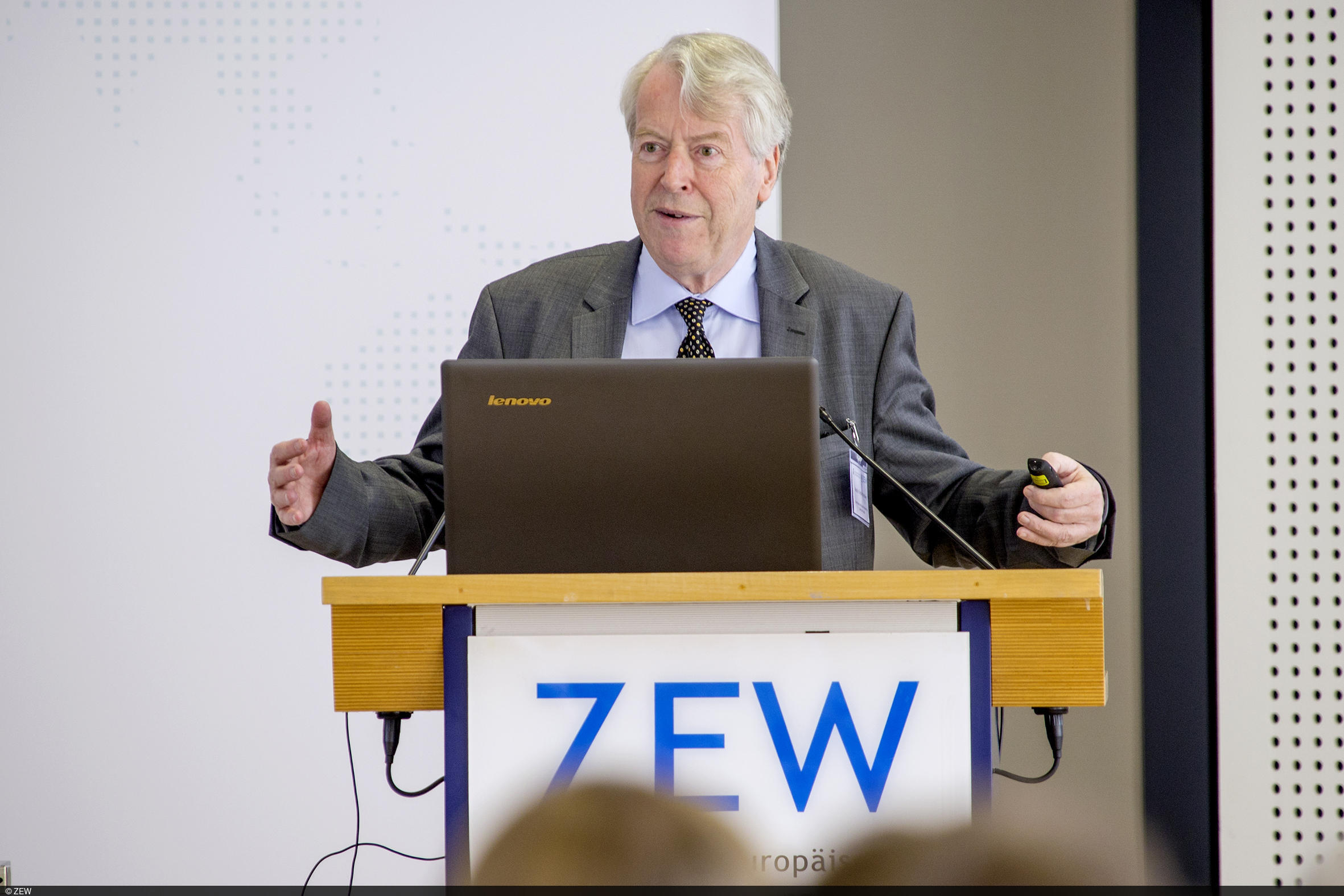ZEW Conference on the Future of Fiscal Coordination in Europe
ConferencesOn 23 and 24 April 2018, the Centre for European Economic Research (ZEW) and the Collaborative Research Center SFB 884 “Political Economy of Reforms” jointly organised the annual ZEW Public Finance Conference. Over the course of the conference, around 80 participants were offered a varied programme which featured numerous presentations on recent research findings from all areas of public economics and political economy. During this year’s conference, special emphasis was placed on theoretical and empirical research on the coordination of fiscal policies in the European Monetary Union (EMU).
Agnès Bénassy-Quéré, professor of economics at the Paris School of Economics and former chair of the French council of economic advisers, delivered the first keynote speech, in which she provided an overview of the current proposal to reform the EMU that she helped develop. The proposal includes a comprehensive set of measures which aim to reconcile market discipline and risk sharing in the Eurozone in order to avoid, or at least cushion, the impact of economic and financial market crises. The measures include, for instance, plans to introduce a fiscal capacity in order to increase risk sharing in the Eurozone during times of economic downturn, as well as to introduce an expenditure rule for euro countries with the aim of tightening budgetary discipline. Furthermore, Professor Bénassy-Quéré proposed to distribute and lower the risks in the banking market by reducing the exposure of individual banks to government bonds, and by establishing a European Monetary Fund based on the European Stability Mechanism (ESM). For heavily indebted Member States, the reforms include a well-structured insolvency procedure as a last resort.
ECB bond purchases – necessary evil or indirect state financing?
The second keynote speech was delivered by Martin Hellwig, professor emeritus and Director of the Max Plank Institute for Research on Collective Goods in Bonn. He shed light on the relationship between monetary and fiscal policy, and criticised that widespread misjudgements have been prevailing in that regard in particular among German public economists. For instance, the European Central Bank’s monetary policy has frequently been criticised for influencing the financing conditions of Member States. According to Martin Hellwig, however, this is an inevitable aspect of the transmission channels of monetary policy. With regard to the ECB’s quantitative easing (QE) programme, it is not necessarily its impact on the financing conditions of Eurozone countries that should be viewed in a critical light, but rather the extensive lending activity resulting from QE, which harms the profitability of already fragile banks.
ZEW and SFB 884 as a platform for current research in the field of public finance and political economy
Moreover, the workshop consisted of 15 sessions during which participants had the opportunity to present their current research findings from the various subdisciplines of public finance and political economy. The presentations covered a broad range of research topics, including for instance potential approaches for establishing a Common Consolidated Corporate Tax Base (CCCTB), the multiplicator effect of public transfers and tax reforms as well as political and economic incentives in refugee policy. During the workshop, the participants also discussed topics such as the taxation of intellectual property and the effectiveness and distribution effect of public transfer payments. Overall, the event proved to be a great success that was in line with the interdisciplinary nature of the SFB 884 “Political Economy of Reforms”. With the aim of gaining new insights into the barriers to political reforms in welfare states, the Collaborative Research Center is located at the University of Mannheim and funded by the German Research Foundation (DFG). The researchers at the SFB come from different disciplines such as economics, political science, sociology and statistics. Within the framework of the SFB, there are several affiliated researchers at ZEW who are, for instance, investigating the economics of public budgetary policies.



